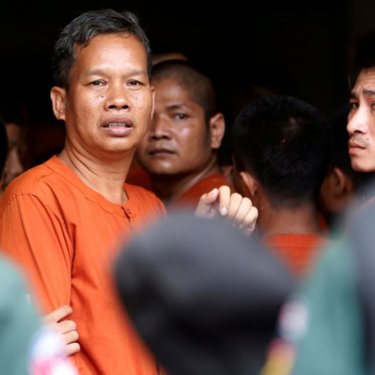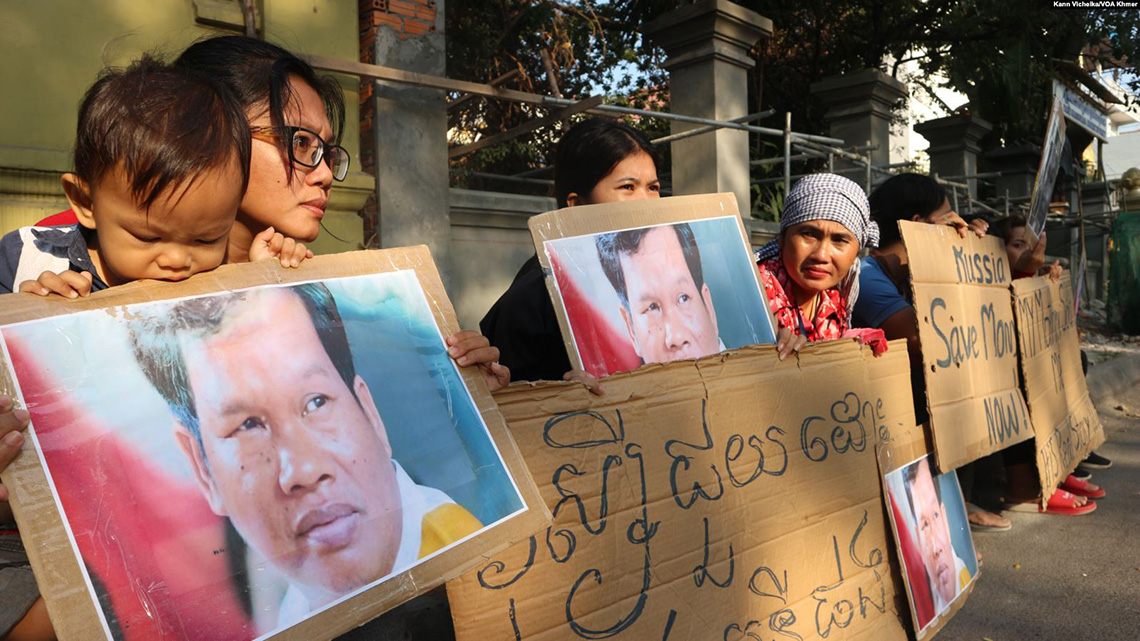Sham trial ends in two-year jail term for Cambodian fixer

Reporters Without Borders (RSF) calls for the withdrawal of all charges against Rath Rott Mony, a Cambodian fixer whose only crime was helping a visiting crew from the Russian state-owned TV network RT (formerly called Russia Today) to make a documentary about child prostitution in Cambodia.
----------------------------------------------------------------------------
Update
In a shocking decision today, a Cambodian court sentenced media fixer Rath Rott Mony to two years in prison after convicting him of “incitement to discriminate.” RSF condemns this iniquitous conclusion to a sham trail and calls for his conviction to be overturned on appeal because of all the inconsistencies in the case against him.
----------------------------------------------------------------------------
After being detained for more than six months, he is due to receive the verdict in his trial in one week’s time, on 26 June. The prosecution accuses him of “defaming Cambodia” by helping RT during the filming of “My Mother Sold Me,” a documentary that RT broadcast in October 2018.
It enraged the Cambodian government so much that Rath Rott Mony fled to Thailand to seek asylum, but was arrested by the Thai police in Bangkok on 7 December and was handed back to the Cambodian authorities five days later.
Described by the authorities as the documentary’s co-producer and accused by interior ministry spokesman Khieu Sopheak of buying stories and broadcasting “fake news insulting the nation,” Rath Rott Mony is facing up to three years in prison and the possibility of being ordered to pay up to 50,000 dollars in damages to plaintiffs produced by the prosecution.
“Judicial sham”
“The decision that is taken by Kao Sao, the judge hearing the case against Rath Rott Mony, will have major implications for the Cambodian justice system’s credibility,” said Daniel Bastard, the head of RSF’s Asia-Pacific desk.
“What with police manipulation of witnesses, disregard of the evidence and arguments submitted by the defence, and bias in favour of the prosecution, it is time to end this judicial sham and free Rath Rott Mony. His only crime was helping to shed light on a subject of public interest.”

Rath Rott Mony’s wife, Long Kim Heang (left), told RSF her husband's case is an act of intimidation against those who dare investigate issues the government deems forbidden (photo : Kann Vichelka / VOA Khmer).
The prosecution’s case is based above all on the testimony of five persons claiming that Rath Rott Mony paid them to appear in the documentary. But the genuineness of these testimonies is questionable. Rath Rott Mony’s wife, Long Kim Heang, told RSF: “In my view, the people who filed complaints against my husband were clearly pressured or threatened into doing it. His arrest and the charges brought against him are just a way for the government to intimidate other media outlets, so that they don’t talk about undesirable subjects.”
“Unseen facilitators”
The prosecution case’s other big flaw is treating Rath Rott Mony as the documentary’s co-producer, a claim repeatedly denied by RT. It was denied again in a recent email to the Cambodian embassy in Moscow from RT’s head of documentaries Ekaterina Yakovleva, who said he was hired solely as a “fixer and interpreter” and had no control over the documentary’s narrative. She also said RT had authorizations signed by all the people who appeared in it.
This is not the first time that Prime Minister Hun Sen’s government has tried to silence people who raise such issues. The American NGO Agape International Missions was banned from Cambodia in August 2017, one month after CNN broadcast a documentary on the child sex trade in Cambodia for which one of the NGO’s representatives served as guide.
RSF published a report in October 2017 about fixers – “reporting’s unseen facilitators” –and the crucial role they play in enabling journalists to go much further in their reporting when in unfamiliar terrain all over the world.
Cambodia is ranked 143rd out of 180 countries in RSF’s 2019 World Press Freedom Index.



